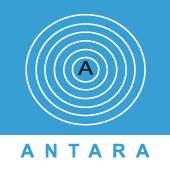Rehabilitation
Rehabilitation – Day Treatment Programme
Residential Rehabilitation Programme “Every person with a mental illness shall have the right to live and work, to the extent possible, in the community” [UN Principles for the Protection of Persons with Mental Illness, Resolution 46/119, December 1991]
The need for rehabilitation for mental heath Rehabilitation for mental health, also known as ‘psychiatric rehabilitation’ is the process of assisting people to acquire and to use the strengths and skills, support and resources necessary for successful and satisfying living, learning, and working after recovering from a mental illness.
Mental illnesses are medical conditions that disrupt a person’s thinking, feeling, mood, ability to relate to others, and daily functioning. Just as people suffering from physical ailments such as diabetes need to make compromises and adjustments to their lives in order to survive with the illness, people who suffer from mental illness and their families are often forced to compromise on the quality of life.
Rehabilitation plays an important role in reducing the despair and emotional suffering.
Rehabilitation Treatment Programme at Antara
Antara’s rehabilitation program focuses on restoring wellness – we firmly believe that a person who feels well can accomplish the tasks of everyday life and achieve his or her desired life goals, and all our efforts are aimed at restoring psychological, physical, and emotional wellness.
The rehabilitation program is designed to provide Medical and psycho social treatment which reduces symptoms and prevents further disability, reduces the chances of relapse and increases the persons strengths and coping mechanisms. This is carried out in a community living environment that reinforces reintegration of basic living skills and self care routines, and structured daily activities which prepare the client to move back into the family and the community. Rehabilitation ensures that through participation in socially and economically meaningful activities the client is reintroduced to a meaningful and qualitatively enriched life.
Admission into the Rehabilitation Program
Patients coming to the outpatient department are assessed by psychiatrists, social workers and are inducted into the Rehabilitation programme. Admission into the rehabilitation programme is always a joint decision made by the client, family members, and the assessing team.
More often, the clients are initially admitted to the Acute Ward to treat the acute symptoms of the mental illness first. After remission of the acute symptoms, the assessing team, the client and the family reassess the situation, and then the client is transferred to the Rehabilitation Ward
The Rehabilitation Process
Design of the rehabilitation program – daily activity schedule, medication, occupational and aesthetic therapy programs. The optimum period varies from 6 to 9 months, however some clients may require more time to achieve the set goals. The activity schedule varies from client to client. The services and care are planned and implemented collaboratively along with the client and the caregivers to achieve optimum results.
- Daily activities include yoga, Group therapy, exercises, housekeeping, self-care, reading, rest and recreation.
- Participation in special programs – special days in the calendar, sports, games, festivals, etc.
- Specific psycho social therapeutic intervention
Key to the rehabilitation program is participation in one or more of the occupational therapy units.
Clients are also encouraged to participate in the aesthetic therapy programmes and the other special activities at Antara.
Period of stay
The program is target based and evaluated from time to time and the outcomes documented. After the client has been inducted into a structured activity schedule the Ward Staff and the social worker regularly monitor the improvement and areas of deficits. Regular mental health assessments are also made by the treating Psychiatrists and the progress is recorded. The process continues till the client attains the desired goals and he or she has achieved the necessary living or social skills.
